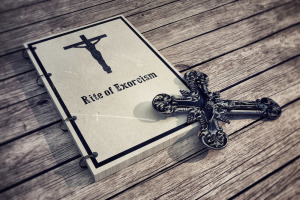Revelation 4: The rapture question

C. S. Lewis wrote, "The doctrine of the second coming has failed, so far as we are concerned, if it does not make us realize that at every moment of every year in our lives, Donne’s question, 'What if this present were the world’s last night?' is equally relevant."
In the first chapter of the Book of Revelation, Jesus is presented as the One "who is coming" again (1:4). This truth is at the heart of the Book.
In chapters 2 and 3, Jesus’ letters to the seven churches have meaningful lessons that can apply to churches of every age, but under the figure of the seven is also portrayed the history of the Church. The parallels are striking and undeniable. The last era is that of Laodicea — a period when the Church is primarily apostate until the Lord returns. This seems to be the age in which we currently live.
Does this mean it’s futile to look for an awakening or revival in these times and that we can only expect judgment? Hardly!
I believe, as the renowned evangelist Dr. Billy Graham once said, God’s judgment can be withheld. In his book, Approaching Hoofbeats, Graham said:
"I believe the judgment of God can be withheld for a period of time. It doesn’t even take the repentance of a whole city to delay God’s judgment plans. Abraham was granted a delay if he could find a mere ten righteous men in Sodom. Still, the judgment day is coming … The call to follow Christ is not easy. It is easy to receive salvation — but there can never be ‘cheap grace.’ Our redemption by the Cross of Jesus Christ was costly to God. So, we must also be willing to deny self, take up a cross, and follow Christ. It is not easy to follow him. It is not easy to decide what tasks you can do and what tasks you must leave for others. It is not easy to take a stand when issues are complex and two-sided. It is not easy to witness for him. It is not easy to work against evil that judgment might be postponed, but it is the task to which we are called."
Graham was right, and many places throughout the Scriptures can substantiate his position. There’s the parable about the man who owned land and wanted a fruitless tree cut down, but his servant urged him to wait until he could work around the tree’s roots and fertilize it to see whether it would still produce. There is also when the reluctant prophet Jonah was sent to Nineveh to preach God’s imminent judgment, but the people repented, and judgment was delayed for another 150 years.
In other words, everything that the Lord’s Word prophecies will most certainly happen just as He says. But exactly when or how may not always be so clear.
Revelation’s record about the Laodicean Church in chapter 3 and the beginning of chapter 4 seems to indicate that eventually, there comes a time of a profound falling away from the faith. Then at the end of this period, the Church (genuine believers) is taken out of the world in what many scholars call the Rapture.
In Revelation 4:1, the apostle John says:
"Then, as I looked, I saw a door standing open in Heaven, and the same voice I had heard before spoke to me like a trumpet blast. The voice said, 'Come up here, and I will show you what must happen after this.'"
Expositors today see the call to the apostle, "Come up here," to be much like what the apostle Paul referenced in I Thessalonians 4:16-17, which says:
"For the Lord himself will come down from heaven with a commanding shout, with the voice of the archangel, and with the trumpet call of God. First, the believers who have died will rise from their graves. Then, together with them, we who are still alive and remain on the earth will be caught up in the clouds to meet the Lord in the air. Then we will be with the Lord forever."
This is the Rapture, when the Church, its righteous influence, and the Spirit of God who abides within the Church are lifted from the earth to heaven. Afterward, "Great Tribulation" begins to break out on the world for seven years because the time of God’s wrath has come.
The Rapture is an event that must be differentiated from the Revelation of Christ, which are two different stages of Christ’s return. In the first phase, the Rapture takes the Church out and removes believers from the judgments which are coming on a wicked, rebellious planet, as recorded in chapters 6-18. The Revelation occurs in chapter 19 when Christ returns to earth with the Church and sets up his glorious kingdom.
Although the teaching of the Rapture is widely held, it is not without controversy.
Some say the word Rapture isn’t in the Bible. True. But neither are other words, such as "Bible," "Trinity," or even "Christianity." Nevertheless, all three are unquestionably a fact.
Rapture comes from the Latin rapio, meaning "a snatching away."
The experience of John in Revelation 4:1 seems remarkably similar to that of the apostle Paul. He said in 2 Corinthians 12:2-4 that he was caught up to Heaven; whether in the body or out of it, he was uncertain. The difference, however, seems to be that Paul heard words he was forbidden to speak, and John was instructed to write the things he saw and heard in a Book.
In John’s being "caught up" to Heaven at the command of Christ, in his own Rapture experience, we have a type of the Rapture of the Church. H.A. Ironside put it concisely in his Lectures on Revelation, saying: "Of this, the rapture of the apostle is the symbol."
Still, others like David Chilton in Days of Vengeance, whom I’ve quoted before in this series, say:
"[T]he ‘Rapture Theory’ is based on a misunderstanding of the Christian doctrine of the Ascension of the Church. The definitive Ascension took place positionally with Jesus Christ, in whom we are seated in the heavenlies (Eph. 1:20; 2:6); the progressive (experiential) Ascension takes place liturgically with Jesus Christ every week, in the celebration of the Eucharist (Heb. 12:22-24); and the final (culminative) Ascension takes place eschatologically with Christ a) spiritually, at death (Rev. 20:4), and b) bodily, at the end of history (I Cor. 15:50-55; I Thess. 4:17)."
In his theology, Chilton, who is Reformed, doesn’t see a Rapture in Revelation 4:1 or elsewhere in the Bible.
Another point of stark demarcation by Christians on the rapture question is whether the Bible teaches that the Church will be exempted from suffering tremendous persecution in the last days. Moreover, there’s the question of whether the Great Tribulation which will come on the earth is the wrath of man or the wrath of God.
Some would argue the Church has experienced persecution throughout the ages, and the believer can expect many tribulations to enter the kingdom of God. Nevertheless, others would claim the time of suffering described in Revelation chapters 6-19 is nothing like any trials or trouble to have ever occurred in human history — a period when the Church must be taken out before these terrible woes begin.
So, which is it? Is there a Rapture of the Church or not?
I have studied these different systems of interpretation extensively. Though I’m sure that I probably don’t know all of what I ought to know, I have not read anything yet which dissuades me from believing in the Rapture. The more I study the question, the more this seems to be the case.
However, there are very compelling points made by each Christian system of eschatology, whether Premillennial, Amillennial or Postmillennial. Tremendous teachers of the faith have held to these three systems, none of which had any liberalizing tendency. So, it seems an act of hubris to be dogmatic about any of them.
The way Christians differ on how Jesus returns is not nearly as crucial as on what points they agree. Christians should agree Christ is personally, literally, and visibly coming again to bring about the consummation of all things. At His coming, Christ will raise the dead, execute judgment, and ultimately institute the eternal state. The second coming of Christ is something meant to bring hope and assurance. The return of Christ should be a powerful incentive to pursue right-living because Christ will come unexpectedly one day. When Christ comes again, it will usher in God’s final judgment of evil, and all those who look for his appearance will reign with Him forever and ever.
The most critical question about Christ’s return is whether you’re ready. He is coming again! This is clear and certain. Will you be ready when He returns? Have you been reconciled to God by turning from your sins and putting faith in Christ as your own Savior and Lord?
If the Second Coming of Christ "doesn’t make us realize that at every moment of every year in our lives,"… we must ask ourselves, "What if this present were the world’s last night?" we’ve missed the whole point!
Rev. Mark H. Creech is Executive Director of the Christian Action League of North Carolina, Inc. He was a pastor for twenty years before taking this position, having served five different Southern Baptist churches in North Carolina and one Independent Baptist in upstate New York.




























